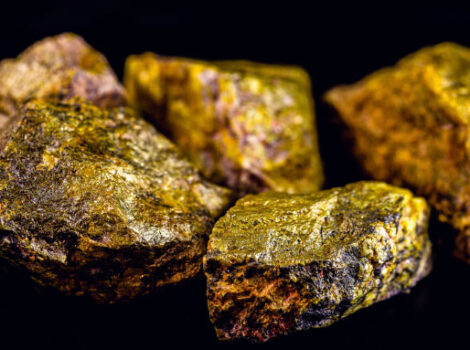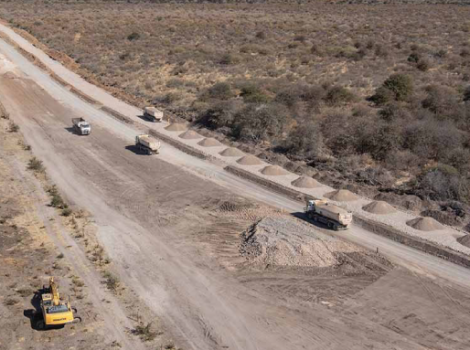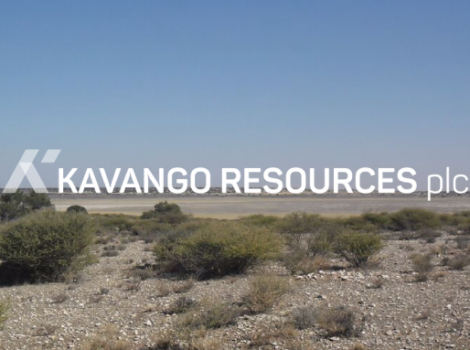
International diamond and metals exploration company Tsodilo Resources on October 31 initiated litigation against the Botswana Ministry of Mineral Resources, Green Technology and Energy Security in connection with the licence renewal process for the Xaudum iron formation project.
The company says it believes the conduct of the Ministry has left no recourse other than to seek resolution through the courts.
While the bulk of the company’s Xaudum iron formation resource remains free of any dispute, the area within the buffer zone is of sufficient value that the company believes further efforts are appropriate to protect shareholder interest, it says in a November 7 corporate update with respect to its exploration and evaluation projects in Botswana. On or about June 30, 2021, the company’s wholly-owned Botswana subsidiary Gcwihaba Resources submitted prospecting renewal licence applications for its Xaudum iron formation project, in north-west Botswana.
Of the seven licences initially granted, two were relinquished in their entirety and five were submitted for renewal. Collectively, 50% of the combined licence area in the seven licences was relinquished pursuant to Sections 17 and 19 of the Mines and Minerals Act. Four of the five licences that contain the vast bulk of the exploration target in Xaudum Iron were renewed as submitted, effective January 1, while the fifth licence, PL020/2018, continued in renewal.
Despite periodic inquiries as to the licence renewal status, Tsodilo was first apprised of a possible reason for the continued delay on April 26, when the Minerals and Energy Minister informed Gcwihaba that part of the area included in licence PL020/2018 is in the buffer zone surrounding the Okavango Delta, a UNESCO World Heritage Property, and that any prospecting activities in that area would be subject to environmental assessment measures.
On April 27, Gcwihaba promptly responded by reminding the Minister that the licence in question has existed in its present form since 2008, six years before the buffer zone was established.
It noted that prior to establishment of the current buffer zone in 2014, significant exploration had already been conducted in that area. Also, it said that, when it was established in 2014, the current buffer zone encroached on a portion of the company’s identified mineral resource and that the prospecting licence, including this area, has since been renewed and regranted multiple times without any controversy.
Gcwihaba also expressed complete agreement that prospecting and mining activities were permitted in the buffer zone subject to various environmental standards and practices spelled out in Botswana law, and further affirmed its commitment to comply with all such requirements and to develop Xaudum in an environment-friendly manner.
“With apparent agreement as to the facts and applicable law, and with renewed and unequivocal assurance from Gcwihaba that it would be sensitive to environmental issues and would fully comply with all laws and regulations in this regard, it was expected that any concerns had been more than addressed and that the PL020/2018 licence would now be renewed in short order.
“However, in a letter received on June 15, despite its earlier clear statements to Tsodilo that exploration and mining could be conducted in the buffer zone, and a history of similar statements by the Botswana government in multiple earlier UNESCO filings, the Ministry advised that the PL020/2018 licence would not be renewed if it included any areas located within the buffer zone,” Tsodilo outlines.
To reach a mutually acceptable resolution, the company filed a revised renewal application reducing the buffer zone area of the licence block to only an area proximate to a paved airport landing strip, a hospital and a shopping centre all established, extended or rebuilt after 2014 and all within the buffer zone. To date, the company has received no response to the revised licence application and, therefore, has resorted to legal efforts.
“There is nothing more important to a junior mining and exploration company or to a multinational resource corporation than the security of the tenure of its licences. Without the sanctity of one’s licence, the business rationale for investing in a country or a project is questionable.
“Botswana has always differentiated itself from other countries because of its adherence to the rule of law and professes that adherence to the rule of law remains a cornerstone to its development,” comments Tsodilo chairperson and CEO James Bruchs.
“We believe this case is unique as both the government and the company agree that mining and exploration can exist in the buffer zone. The facts and the law are not in dispute, and yet the licence has not been renewed.
“We look forward to a speedy resolution of the matter in order to continue our work of bringing one of the largest if not the largest resource project in the country to development, creating jobs, opportunities and income for the Batswana.
“Our project will be designed at inception to be part of the trend in producing high quality and high value premium direct reduced iron feed quality products, that can be used to manufacture green steel with reduced greenhouse-gas emissions as well as potentially reducing costs and improving steel quality,” he adds.



